OVERVIEW
There are about 2.3 billion children in the world, nearly a third of the total human population. Children are defined by law as people who are under the age of majority in their country, usually 18 years old. Whatever their age, all children have human rights, just as adults do. This includes the right to speak out and express opinions, as well as rights to equality, health, education, a clean environment, a safe place to live and protection from all kinds of harm. Children’s rights are enshrined in the 1989 United Nations Convention on the Rights of the Child (UNCRC), the most ratified human rights treaty in the world. Only one of the UN’s 197 member states hasn’t ratified the Convention — the United States.
The UNCRC seeks to protect children from harm, to provide for their growth and development, and to empower their participation in society. Article 42 of the Convention is a commitment to educate children and adults about child rights, but it seldom happens. Ignorance of rights puts children at greater risk of abuse, discrimination and exploitation.
That is why Amnesty International, Angelina Jolie and Professor Geraldine Van Bueren QC have co-written a book for teenagers: Know Your Rights and Claim Them. It is also why Amnesty International has created a free online child rights education course.
There are
children in the world.
WHAT IS THE PROBLEM?
Globally, children’s human rights are violated every day. Children and young people are especially exposed to rights violations because they are dependent on adults, which can at times heighten risk. Children are likely to form the group at highest risk of poverty, malnourishment and abuse, and are often disproportionately impacted by human rights crises.
HOW ARE CHILD RIGHTS VIOLATED?
Sadly, all child rights are regularly abused or violated. This can start at birth. For example, an estimated 290 million children globally have not had their births registered, so they have no legal identity or proof of existence. This makes it nearly impossible for them to claim their rights throughout their lives – which means they may not be able to go to school, receive healthcare, or get a job when they are older. Girls in low-income countries have only a 50/50 chance of ever having a legal identity and accessing rights and services.
Around the world, over 61 million children do not attend primary school. An estimated 150 million girls and 73 million boys are sexually assaulted every year. In some countries, girls as young as nine are forced into marriage and children as young as six are judged as adults in criminal courts. At least 330,000 children are held in immigration detention in 80 countries every year, simply for being migrants or refugees. Many are forcibly separated from parents and families.
In 2019, one in six children was living in extreme poverty — a situation that puts children at greater risk of domestic violence, child labour, sexual exploitation, teenage pregnancy and child marriage. This number rose significantly during the Covid-19 pandemic.
In 2020, nearly 820 million children did not have basic hand washing facilities at school, contravening their right to health and putting them at greater risk of catching and spreading infection.
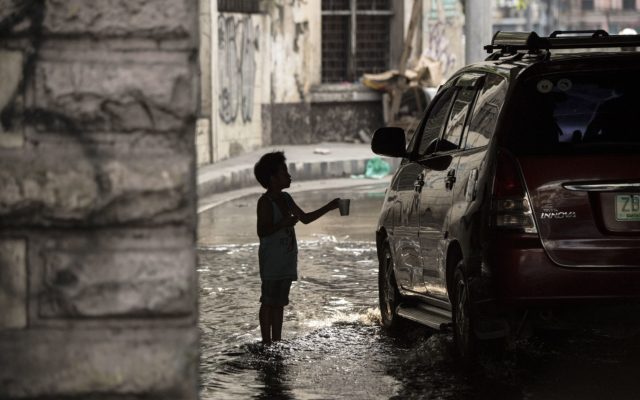
WHAT ABOUT CHILDREN’S RIGHT TO A VOICE?
One of the UNCRC’s General Principles is that children have the right to participate – and to be listened to – in all decisions that affect them. Participation rights are linked to children’s levels of maturity and apply accordingly. This is to support their development, but it also helps everyone achieve better-informed decisions. It strengthens society.
Like adults, children have the right to voice their opinions and to peacefully protest. Today, all over the world young people and children are using this right. They are rising up to demand climate justice and racial equality, amongst other calls. Yet their perspectives are still often overlooked or dismissed.
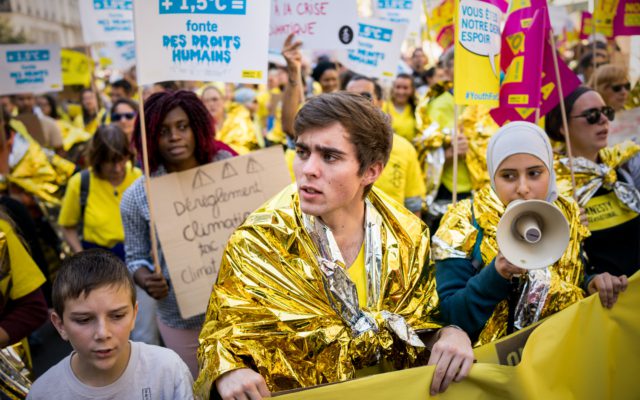
CASE STUDIES
JANNA JIHAD, PALESTINE
Janna Jihad is a teenage girl who has grown up in the Palestinian village of Nabi Salih, located north of Ramallah city in the West Bank. It is part of Palestinian territory that has been under Israel’s military occupation since 1967.
Janna, and Palestinian children like her, are denied their rights and face discrimination on a daily basis. The Israeli army regularly arrests children from Janna’s village, often during raids on their homes in the middle of the night while families are asleep. Children struggle to access their rights to education and freedom of movement because of barriers and checkpoints which force delays on any journey. It can take hours to get to school instead of a few minutes. People find it hard to travel for work and to earn a living to support their families. For anyone who is sick, it can be nearly impossible to get to a hospital.
In 2009, when Janna was three, her community used their right to peaceful protest and began weekly demonstrations. But they were met with violence. When she was seven, Janna’s uncle and her friend were killed by the Israeli military. Janna used her mother’s phone to record what was happening and reveal the truth. By the time she was a teenager, her live videos were being watched by hundreds of thousands of people around the world. In 2018, Janna became the youngest press card-carrying journalist in the world, at the age of 12. Yet she has faced many threats for her work.
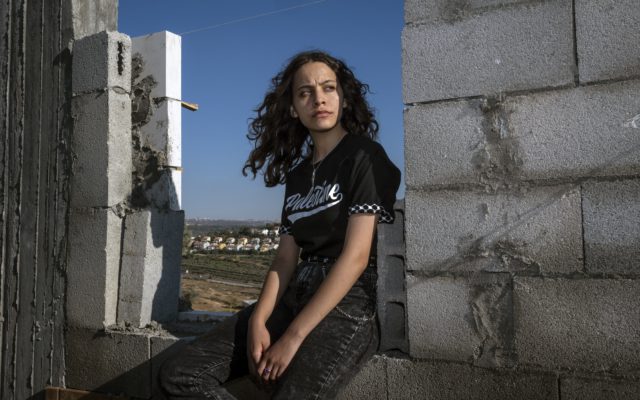
I started journalism at the age of seven because I wanted the whole world to know what is happening here and how we live in fear and uncertainty. I want a normal life, a normal childhood.
Janna Jihad
KHAIRIYAH RAHMANYAH, THAILAND
Khairiyah Rahmanyah was born to a fishing family in southern Thailand. The sea near her home is a rich source of seafood and home to endangered marine species, such as sea turtles and rare pink dolphins. In 2020, when she was 17, Khairiyah launched a campaign against the Thai government’s plan to develop land on which her village in Chana is located, into an industrial estate. She spent hours picketing and travelled 1,000 kilometres to Government House in Bangkok to deliver a letter to the prime minister begging him to stop the development. As a result, the government decided to postpone its decision.
Khairiyah said: “I am really proud to be representing the stories of my community. I was born into activism and I have been fighting to protect my community since I was little. It has been painful to live this reality and I want life to be different for the next generation. As children, we must be allowed to learn about our rights and it’s up to adults to encourage, empower and support us.”.
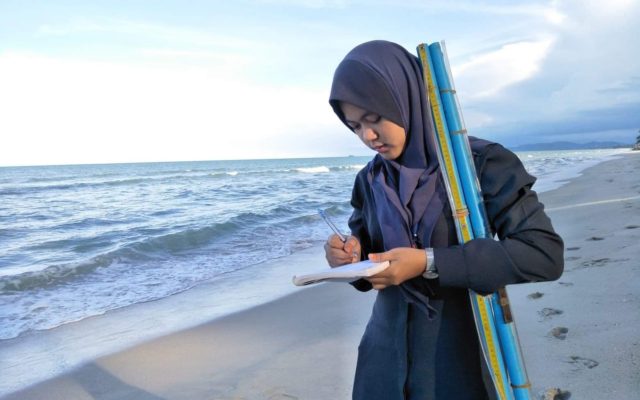
As children, we must be allowed to learn about our rights and it’s up to adults to encourage, empower and support us.
Khairiyah Rahmanyah
WHAT IS AMNESTY DOING?
GLOBAL HUMAN RIGHTS EDUCATION
Knowledge is key.
Article 42 of the UN Convention on the Rights of the Child asks governments to ‘… undertake to make the principles and provisions of the Convention widely known, by appropriate and active means, to adults and children alike’.
To support Article 42, Amnesty International, Angelina Jolie and Professor Geraldine Van Bueren QC (one of the original drafters of the UNCRC) have written a book for teenagers: Know Your Rights and Claim Them. It explains child rights, shows the reality of what happens when they are denied, highlights the powerful work of young activists, and provides tools for young readers to navigate the law, take action and claim their rights.
The book is published in the UK from 2 September 2021, and can be pre-ordered in Australia, Greece, New Zealand and the USA. Denmark, Germany, South Korea and Romania are following close behind. We hope the book will be published in all countries.
Amnesty International has also created an introductory online child rights course, for young people and adults. It is free, takes 90 minutes, and includes interviews with child activists, self-paced learning and ideas for taking action on children’s rights.

CASE STUDIES
YEZIDI CHILDREN IN IRAQ
Article 39 of the UN Convention on the Rights of the Child (UNCRC) asks governments to ‘take all appropriate measures to promote physical and psychological recovery and social reintegration of a child victim of: any form of neglect, exploitation, or abuse; torture or any other form of cruel, inhuman or degrading treatment or punishment; or armed conflicts’.
The plight of Iraq’s Yezidi children highlights the importance of this article. Between 2014 and 2017, the armed group calling itself the Islamic State (IS) committed war crimes and crimes against humanity against the Yezidi community in Iraq. Yezidi children were kidnapped and enslaved, tortured, forced to fight, raped and subjected to other horrific human rights violations. Thousands of children were killed or abducted.
Even though hundreds of others survived and returned to their families in Iraq, their homecoming did not mark the end of their suffering. These child survivors went on to face significant physical and mental health challenges which Amnesty International documented in a report published in July 2020, yet they received no assistance. Yezidi boys, who had been forced to fight by their captors, were often isolated by their own communities on their return. Yezidi women and girls who gave birth to children as a result of sexual enslavement by IS were often driven, coerced or even deceived into separating from their children due to religious and societal pressures.
As part of its advocacy efforts, Amnesty International called for a draft survivors law to be expanded to include children as beneficiaries of any reparations scheme. On 1 March 2021, Iraq’s parliament passed the Yezidi Female Survivors Law, which provides the framework for reparations and assistance to survivors of ISIS captivity – including child survivors – with the aim of getting them the support they are entitled to.
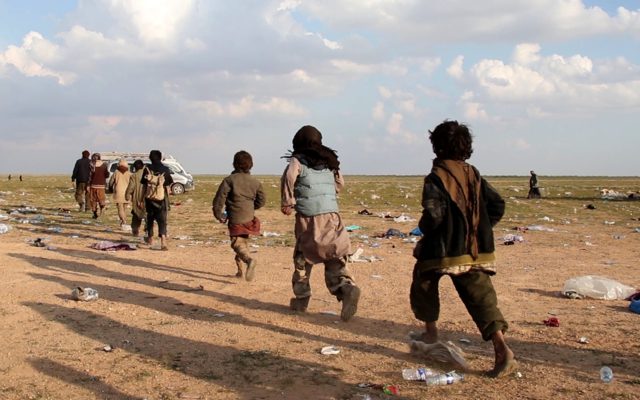
IMPACT OF CONFLICT ON CHILDREN IN NORTHEAST NIGERIA
The conflict in Northeast Nigeria has had a devastating effect on children, as documented in Amnesty International’s report, ‘We Dried Our Tears’.
Boko Haram has abducted hundreds of girls and boys and subjected them to further atrocities in captivity. The group has also wreaked havoc on communities across the region, pillaging villages and attacking civilians and schools.
Rather than protecting children fleeing Boko Haram areas, the Nigerian military has often unlawfully detained them for months or years and subjected them to torture and other ill-treatment. Amnesty International has also shown how the government has failed to ensure that displaced children have access to an adequate education.
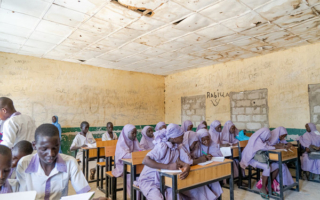
The UN Convention on the Rights of the Child: Key Facts
The UNCRC is the most widely ratified human rights treaty ever.
Who has ratified: 196 out of 197 UN member states. Who hasn’t ratified: the United States
There are four General Principles underpinning the UNCRC:
- The right to life, survival and development;
- Non-discrimination;
- The right to be heard;
- The best interests of the child.
There are three Optional Protocols to the UN Convention on the Rights of the Child:
- Optional Protocol on the Involvement of Children in Armed Conflict;
- Optional Protocol on the Sale of Children, Child Prostitution and Child Pornography;
- Optional Protocol on a Communications Procedure.

